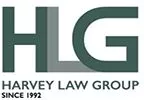If you are a foreigner and interested in living and working in Vietnam for an extended period of time, you can consider applying for a renewable 10-year permanent residence (PR) card. When acquiring PR status, you can enjoy the benefits of exiting and entering Vietnam without a visa, saying goodbye with temporary card renewal and you can sponsor your family members to visit Vietnam.
Who can be granted PR status?
There are 4 cases where foreigners are considered for permanent residence status in Vietnam, these include(i) foreigners who have contributed to the development and protection of Vietnam and are awarded medals or titles by Vietnam's government; (ii) scientists or experts temporarily residing in Vietnam; (iii) any foreigner sponsored by his parent, spouse, or child who is a Vietnamese citizen and has a permanent residence in Vietnam; or (iv) any person without nationalities who has had a temporary residence in Vietnam from 2000 or earlier.
This article will only refer to the case of a foreigner who gets the PR status through the sponsorship of his/her parent, spouse, or child who is a Vietnamese citizen and has a PR in Vietnam.
What are the compulsory criterion to get the PR status?
If you are sponsored by your family member who is a Vietnamese citizen, you will be considered for the PR if you have a legitimate place of residence, and a stable income to ensure your life in Vietnam.
You can rent or buy a house yourself in Vietnam or stay at the house of your father, mother, wife, husband, or your child who has agreed to sponsor you for PR in Vietnam.
In addition, you need to have a stable and legitimate job that can cover all the necessary expenses in the daily life of you and your dependents in Vietnam. Another option is to prove that the financial resources come from the sponsor.
In addition to the job and residence requirements, the applicant needs to have temporarily resided in Vietnam for at least consecutive 3 years or more. This 3-year period will be determined on the basis of the entry and exit visa borne at the checkpoint within last 4 years from the date on which the application for permanent residence is submitted.
What are the procedures for granting PR status?
If you want to apply for the PR application, you must personally submit the application and conduct an interview at the immigration authority of Vietnam. Within 4 months from the date of receipt of the complete dossiers, the Minister of Public Security shall consider and decide to grant PR for you. They may ask you to provide more supporting documents or evidences, therefore, the extension of 2 additional months can be settled.
What are the submission documents for the PR application?
The application for PR consists of:
- A written request for PR status;
- A criminal record issued by a competent authority of the country of which the applicant is a citizen;
- A diplomatic note from a diplomatic mission of the country, of which the applicant is a citizen; requesting the grant of PR status to the applicant;
- Certified true copy of the passport;
- Evidence proving your residential place and employment in Vietnam;
- A sponsorship letter from your family members.
Summary
As you can see from above, in order to achieve PR status in Vietnam, the applicant must meet the conditions concerning employment, place of residence, relationship with Vietnamese citizens, as well as the proof of residence period in Vietnam.
The Immigration Authorities appreciate the applicant's close attachment to Vietnam. However, sometimes it causes difficulties for those who would love to settle down in Vietnam but cannot stay the 3-continuous years or do not have Vietnamese family ties with PR in the country.
In these cases, one should consider residency and citizenship by investment ("RCBI") programs in other countries from here, such as the Canada SUV program, Portugal Golden Visa, France Start-Up Visa, or Grenada CBI, etc. These are all programs that do not require the applicant to be related by blood/marriage to a native or a long-term stay.
The content of this article is intended to provide a general guide to the subject matter. Specialist advice should be sought about your specific circumstances.

